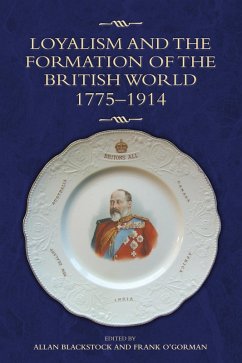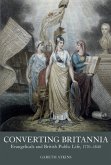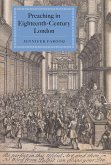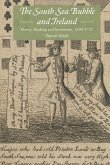Explores loyalism as a social and political force in eighteenth and nineteenth century British colonies and former colonies.
Loyalism in Britain and Ireland, which was once seen as a crude reaction against radicalism or nationalism, stimulated by the elite and blindly followed by plebeians, has recently been shown by historians to have been, on the contrary, a politically multi-faceted, socially enabling phenomenon which did much to shape identity in the British Isles. This book takes further this revised picture by considering loyalism in the wider British World. It considersthe overall nature of loyalism, exploring its development in England, Ireland and Scotland, and goes on to examine its manifestation in a range of British colonies and former colonies, including the United States, Canada, India, Australia and New Zealand. It shows that whilst eighteenth-century Anglo-centric loyalism had a core of common ideological assumptions, associational structures and ritual behaviour, loyalism manifested itself differently in different territories. This divergence is explored through a discussion of the role of loyal associations and military institutions, loyalism's cultural and ritual dimensions and its key role in the formation of political identities. Chronologically, the book covers a pivotal period, comprehending the American and French Revolutions, the 1798 Irish rebellion and Irish Union, the Canadian rebellions of 1837, and Fenianism and Home Rule campaigns throughout the British World.
Allan Blackstock is Reader in History at the University of Ulster and author of Loyalism in Ireland, 1789-1829 (Boydell, 2007).
Frank O'Gorman was Professor of History at the Universityof Manchester.
Contributors: Allan Blackstock, Richard P. Davis, Oliver Godsmark, William Gould, Jacqueline Hill, Andrew R. Holmes, Kyle Hughes, Mark G. McGowan, Donald M. MacRaild, Keith Mason, Patrick Maume, KatrinaNavickas, Frank O'Gorman, Brad Patterson, Scott W. See
Loyalism in Britain and Ireland, which was once seen as a crude reaction against radicalism or nationalism, stimulated by the elite and blindly followed by plebeians, has recently been shown by historians to have been, on the contrary, a politically multi-faceted, socially enabling phenomenon which did much to shape identity in the British Isles. This book takes further this revised picture by considering loyalism in the wider British World. It considersthe overall nature of loyalism, exploring its development in England, Ireland and Scotland, and goes on to examine its manifestation in a range of British colonies and former colonies, including the United States, Canada, India, Australia and New Zealand. It shows that whilst eighteenth-century Anglo-centric loyalism had a core of common ideological assumptions, associational structures and ritual behaviour, loyalism manifested itself differently in different territories. This divergence is explored through a discussion of the role of loyal associations and military institutions, loyalism's cultural and ritual dimensions and its key role in the formation of political identities. Chronologically, the book covers a pivotal period, comprehending the American and French Revolutions, the 1798 Irish rebellion and Irish Union, the Canadian rebellions of 1837, and Fenianism and Home Rule campaigns throughout the British World.
Allan Blackstock is Reader in History at the University of Ulster and author of Loyalism in Ireland, 1789-1829 (Boydell, 2007).
Frank O'Gorman was Professor of History at the Universityof Manchester.
Contributors: Allan Blackstock, Richard P. Davis, Oliver Godsmark, William Gould, Jacqueline Hill, Andrew R. Holmes, Kyle Hughes, Mark G. McGowan, Donald M. MacRaild, Keith Mason, Patrick Maume, KatrinaNavickas, Frank O'Gorman, Brad Patterson, Scott W. See
Dieser Download kann aus rechtlichen Gründen nur mit Rechnungsadresse in A, D ausgeliefert werden.









